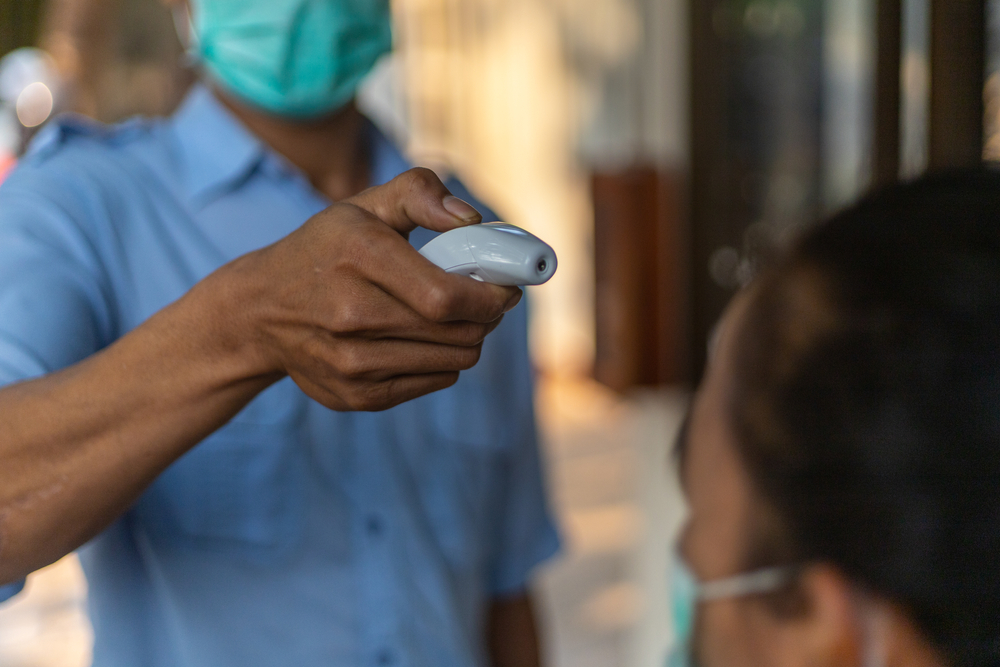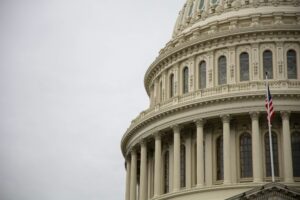EEOC Guidelines Support That Employers Can Temperature-Test Employees as a Condition of Working

As the World Health Organization (WHO) has declared COVID-19 to be a pandemic; temperature-testing employees as a condition of working is permissible. Also, the Centers for Disease Control and Prevention (CDC) in addition to state and local health agencies have acknowledged the community spread of COVID-19 and have stated “employers may measure employees’ body temperatures. However, employers should be aware that some people with COVID-19 do not have a fever.”
EEOC and ADA Considerations
Generally, measuring an employee’s body temperature is a medical examination. However, the Equal Employment Opportunity Commission (EEOC) has issued pandemic preparedness guidance and has concluded that many pandemic-related medical inquiries (including COVID-19) are not disability-related inquiries restricted by the ADA.
An employer can make the following inquiries as related to a COVID-19 risk assessment:
a). Asking an employee whether he or she is experiencing cold or flu-like symptoms;
b). Asking an employee who traveled during a pandemic about potential exposure to the pandemic virus during the trip;
c). Asking an absent employee if he or she is absent due to experiencing COVID-19 symptoms.
Sending an employee home because he or she displays influenza-like symptoms during a pandemic is permissible because it is not a disability-related inquiry. The EEOC guidelines also state that during or after a pandemic, employers may require employees who have been away from work during a pandemic to provide a doctor’s note certifying fitness to return to work. “Such inquiries are permitted under the ADA either because they would not be disability-related or, if the pandemic influenza were truly severe, they would be justified under the ADA standard for disability-related inquires of employees.”
Employers choosing to take their employees’ temperature should make clear that the temperature test is being used solely to determine if the employee may have a symptom of COVID-19, as opposed to detecting any other medical impairment or disability. All temperature tests should be uniformly given to all employees and not to a select group of employees.
Privacy Considerations
All employers’ use of temperature screening should be limited to infrared digital thermometers rather than oral thermometers, which are more invasive. Employers should avoid taking an employee’s temperature in public, or in a manner which would allow other employees to discern their co-worker’s test result. Employers should maintain the testing result records in confidential medical files, as they fall within the definitions of personnel file materials or medical records under state law.
Not only should the temperature reading be kept confidential, but the person administering the temperature check should be trained on the procedure. It is prudent to have one or a limited number of employees (ideally within HR or senior management) who are designated and trained to take temperatures so there is a consistency in the process. Although the person administering the screening need not be a medical professional, if you have a medical professional available or hired for this worksite process, it is logical that this person would be best suited for the task.
Social distancing must be practiced and individuals should keep at least 6 feet apart when they are standing in line to have their temperatures measured.
Wage and Hour Requirements
Employers must comply with the Fair Labor Standards Act (FLSA) for all non-exempt employees. In this instance, temperature screening would fall under a similar employer act of “security screening”. Employers do not have to pay employees for pre-shift or post-shift security screening. The Supreme Court ruled that an activity is compensable if it is an “integral and indispensable” part of the employees’ principal work activities.
In Busk v. Integrity Staffing Solutions, Inc. (In re Amazon.com, Inc.) 2018 U.S. App. Lexis 31108, the Court ruled unanimously that even though the employer required the security screening, the activity was not an integral and indispensable part of the employee’s principal work activities, and accordingly, was not compensable work time. If the temperature screening is “voluntary,” this would support the employer’s position that this activity was not mandated by the employer. In order to overcome any potential further claims, it is recommended that all employees sign a waiver form reflecting that they voluntarily agree to participate in temperature screening and acknowledge that it is not part of the employee’s principal work activities.
OSHA Requirements
The General Duty Clause of the Federal International Safety Act of 1970 requires all employers to furnish each worker with “a place of employment, which is free from recognized hazards that are likely to cause death or serious physical harm.” The coronavirus certainly qualifies as a “recognized hazard.”
Employers should record confirmed cases of COVID-19 on their OSHA 300 log, “when a worker is infected as a result of performing their work-related duties.” This is when an employer has a “confirmed case” of COVID-19 and if the case is “work-related”. An injury or illness is work-related if an event or exposure in the work environment either caused or contributed to the resulting condition.
Deaths must be reported to OSHA within 8 hours, and in-patient hospitalization must be reported with 24 hours. OSHA does not require reporting of the inpatient hospitalization which occurs more than 24 hours after the work-related incident leading to the infection, or if death occurs more than 30 days after the work-related incident leading to the infection. “Work-related” inquiry is a difficult task under these COVID-19 circumstances and must be given a fact-intensive inquiry.
Conclusion
The EEOC guidelines support that employers are considered to be acting lawfully if they decide to temperature-test their employees as a condition of working. If the employer adopts this temporary measure, it must be conducted in a non-discriminatory manner and ensure that consistent procedures and protocols are followed.
The EEOC has also provided as part of its guidelines that:
- An employer may take an applicant’s temperature as part of a post-offer, pre-employment medical examination.
- An employer may screen applicants for symptoms of COVID-19 after making a conditional job offer.
- An employer may delay the start date of an applicant who has COVID-19 or symptoms associated with it.
- An employer may withdraw a job offer when it needs the applicant to start immediately but the individual has COVID-19 or symptoms of it. Based on current CDC guidelines, the individual cannot safely enter the workplace, and therefore the employer may withdraw the job offer.
Pittsburgh Labor and Employment Attorneys
Frank Botta advises companies in a wide variety of labor and employment matters. Please contact Frank at (724) 776-8000 or fbotta@lynchlaw-group.com with your questions and concerns about the impact of COVID-19 on your business.




